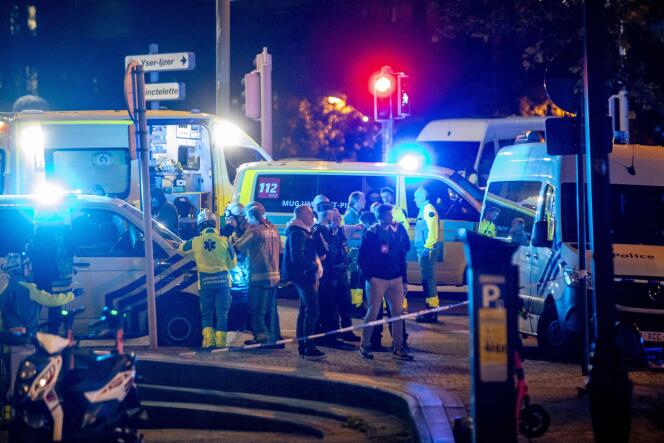


Four days after the attack that claimed the lives of two Swedes in Brussels, Belgium's Minister of Justice Vincent Van Quickenborne announced his resignation. At an impromptu press conference on Friday evening, October 20, the Flemish liberal government official revealed troubling details about system failures that, if prevented, could have led to the timely detection and arrest of Tunisian Abdesalem Lassoued.
This man who arrived in Belgium in 2016, where he lived in hiding for seven years, was, in fact, the subject of an extradition request made by Tunisia, Van Quickenborne revealed. The request arrived at the Ministry of Justice in mid-August 2022, before being sent to the Brussels public prosecutor's office on September 1. There, it was not processed. "An unacceptable error" by the magistrate concerned, explained the minister, who refused to seek excuses and pretexts but preferred to leave office.
"I have passed on this information to the prime minister and announced my resignation (...)," explained Van Quickenborne. "I sincerely apologize on behalf of the judicial system to the victims and their families. I would also like to apologize on behalf of the judicial system to the Swedish people and to our fellow Belgians," he concluded. Johan Delmulle, Brussels public prosecutor, referred to an "unfortunate combination of circumstances." According to him, this case was "unfortunately lost sight of," while some 30 others, presented simultaneously, were correctly handled.
Faced with questions over the past few days as to how Lassoued could have, in Van Quickenborne's words, "slipped under the radar," the Belgian justice system should have known that the Tunisian had been sentenced in 2005 to 26 years and eight months in prison in his own country for two attempted murders, destruction and arson. Information circulated to date, including at a parliamentary debate in Brussels on Wednesday, referred only to a sentence of two years and two months for a drug offense. In reality, Lassoued had escaped from prison in 2011 and had been wanted by his country's justice system ever since.
After arriving in Europe via the island of Lampedusa, he successively passed through Italy, Norway, Sweden and Belgium. In 2016, Italian authorities warned Belgian officials about the potential threat posed by the individual, who was allegedly tempted to join the combat zones in Syria. According to the Italian daily Corriere della Sera, at the time he was said to have joined a group aligned with Al-Qaeda.
You have 55.39% of this article left to read. The rest is for subscribers only.
